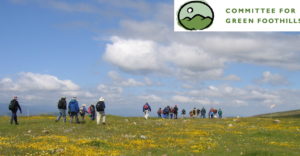The Environment as a political issue covers:

- climate change
- deforestation
- overpopulation
- loss of biodiversity
- soil contamination and erosion
- clean drinking water
- clean energy
- May 15, 2017 Action: Committee for Green Foothills
- April 17, 2017 Action: The NRDC & The Sierra Club
- More California Environmental Legislation News
- Past Actions
MAY 15, 2017 ACTION: COMMITTEE FOR GREEN FOOTHILLS
State Senator Hannah-Beth Jackson presented amendments to SB188 (offshore drilling) in response to President Trump’s April 28, 2017 Executive Order that reverses an Obama administration moratorium on oil and gas drilling in federal lands on the Outer Continental Shelf, including beneath the Pacific. The goal is to prohibit the State Lands Commission from approving new pipelines on California’s coastline (three miles out from the shore).
Download a letter to Senator Jackson in support of SB188 and thanking her for such immediate and brave action in response to Trump’s Executive Order.
Address: Senator Hannah-Beth Jackson; State Capitol, Room 2032; Sacramento, CA 95814
Subject: SB188 Support of Senator Jackson’s amendments to SB188
Message: “I support your amendments to SB188.” Other points: 90% of California residents support protecting the California coastline. Residents do not want a repeat of the 2015 spill that resulted in 143,800 gallons of leakage into the Pacific. California’s economy depends on tourism and fishing, and resources would be better invested in renewable energy, not oil from the ocean.
COMMUNITY ADVOCACY: MAKE A DIFFERENCE LOCALLY
The Committee for Green Foothills – protecting open space and natural resources in Santa Clara and San Mateo Counties through environmental advocacy, education, and community empowerment
Most land decisions are LOCAL decisions. The only people paying attention are developers and those who can profit off of it. YOU AND I can make a difference.
State Senator Hannah-Beth Jackson has introduced amendments to SB188, which would prohibit the State Lands Commission from approving new pipelines. State jurisdiction applies to coastal waters up to 3 miles offshore. So any offshore oil drilling operations would have no pipelines to get their oil to shore. San Mateo County already prohibits onshore oil facilities – this would also prohibit offshore drilling.
Download the Sen Jackson Letter for SB188 Support and find out more details on how to be a community advocate with impact and take action!
How can you be an effective community advocate? All politics is local. Change happens with your home and your neighborhood.
- Educate Yourself
- learn all about the project timeline
- who wants the project to happen?
- what are the potential impacts of the project?
- Ask What Is Your Goal?
- defeat the project entirely
- modify the project — what would you be satisfied with?
- Who Are Your Allies?
- local residents
- environmental groups
- other agencies
- How to be an effective advocate?
- know what your “ask” is and make it specific
- don’t personalize the issue
- know your facts
- what does the other person want and/or need?
- Attend the public hearing, i.e. city council meeting
- do your homework: know your reps, when the meeting is, and what its protocol and formats are
- tell your story
- if you found allies, plan a group attendance, possibly carrying signs or petitions and determine a focus: know the overall goal as well as your specific ask
- recognize partial victory
- thank and update allies
Follow Up Action to April 17, 2017 Town Hall: The NRDC & The Sierra Club
There is hope. That was the message delivered by Maxwell Baumhefner and David Olsen of the Sierra Club on Monday, April 17th. California has special protections and a strategy in place in case any of those protections are threatened by the barrage of anti-environmental protection orders and legislation coming from Washington. These threats form a long list that’s about to get longer. However, California can continue to be the beacon of progress as the world and the United States looks to it as a leader of environmental protection. Moreover, what happens in California radically affects other states.
 OVERVIEW
OVERVIEW
GOOD NEWS from the NRDC! We basically know how to get the carbon out of the electricity sector, we’ve made significant progress on that front, and will continue to do so, in spite of recent events. Getting the carbon out of the transportation sector, comprised of hundreds of millions of mobile sources of emissions is a more challenging task, but this is what we have to do:
- Increase the efficiency of everything
- Reduce the need to drive
- Plug everything we can into a decarbonized grid, and reserve the limited supply of truly sustainable, energy-dense liquid fuels for the stuff we can’t plug in (e.g., planes).
NRDC’s transportation team works on all three of these steps. Please click on this powerpoint for more detailed information.
 And GOOD NEWS, and some bad, from the Sierra Club! We are out of the drought but there are many challenges ahead of us because of California’s unique ecosystem which fluctuates the state from being a drought state and a flood state. We have to have the policies, laws, and solutions in place to always face droughts and floods.
And GOOD NEWS, and some bad, from the Sierra Club! We are out of the drought but there are many challenges ahead of us because of California’s unique ecosystem which fluctuates the state from being a drought state and a flood state. We have to have the policies, laws, and solutions in place to always face droughts and floods.
NRDC
Support AB378: The state’s cap-and-trade program requires companies to buy permits to release greenhouse gas emissions (meaning: major polluters buy credits for their carbon emissions). Although AB378 wants to extend this program, due to expire in 2020, and supports its goal to reduce emissions to 40 percent below 1990 levels by 2030, lawmakers and the NRDC are concerned that the benefits have not reached all communities. Predominantly low-income and minority communities are disproportionately impacted by greenhouse gas emissions, but have not seen the same jobs and economic development in the green energy sector, or improvements to health and quality of life, that other regions have under the current law.
Here is a template of a long form NRDC Support Letter to Assemblymember Cristina Garcia. You can use this as an example to craft your own letter or download one of our short form letters (it is in Word form so you can revise it if you wish and either keep or delete the Citizens Rise logo):
Letter to Senator Kevin de León, President pro Tempore of the California State Senate
Letter to Senator Jerry Hill(California Senate District 13)
Letter to the Speaker of the Assembly Anthony Rendon
Letter to Speaker Pro Tempore Kevin Mullin(California Assembly District 22)
THE SIERRA CLUB
Oppose the CA Water Fix: Download this letter to oppose the Water Fix (it is in Word form so you can revise it if you wish and either keep or delete the Citizens Rise logo) addressed to:
Board of Directors and Staff
Santa Clara Valley Water District
5750 Almaden Expressway
San Jose, CA 95118
The word “fix” is misleading. This initiative consists of two pipelines, 30 miles long, 40 feet each in diameter, and 150 feet below ground. It is expensive ($15-67 billion project) with major cost uncertainties when water and conservation organizations have low cost, many existing solutions that would not further damage the environment and be half the cost. Here are the talking points:
The amount of additional water to be obtained is very small, particularly compared to the cost of building tunnels
Many unresolved issues remain for how tunnels would be managed. There’s great uncertainty
MORE CALIFORNIA ENVIRONMENTAL LEGISLATION NEWS
Preserve California
Find out about the #PreserveCA package: Three new bills were recently introduced by California Senate Pro Tem Kevin de León and other state champions, all designed to protect California against environmental harm from the anti-environment antics of the Trump Administration and Congress. These bills can be a model for other states that want to protect against environmental civil rights damage coming from Washington, D.C. [full blog on Preserve CA package]
Assembly Bill 1405
California Assembly Speaker Pro Tem Kevin Mullin has introduced AB 1405 to deploy more clean energy resources during peak electricity demand, in order to meet the State’s 2030 greenhouse gas (GHG) and renewable energy targets.
“California’s goals of 50% Renewable Portfolio Standard (RPS) by 2030, 40% greenhouse gas reductions below 1990 levels by 2030, and providing reliable, cost-effective electricity to energy customers are laudable, but ultimately incongruous in the absence of a policy framework and new market mechanisms to allow California’s Independent System Operator (CAISO) to manage the impacts of increasing renewables penetration” said Mullin.
PAST ACTIONS:
Save the Election Assistance Commission
- Committee on House Administration: (202) 225-8281 / email
- Chairman Harper: (202) 225-5031
- Ranking Member Brady: (202) 225-4731
DAPL
CLIMATE JUSTICE: On January 24, President Donald Trump signed an order that makes it easier for Energy Transfer Partners (ETP) to complete its controversial Dakota Access Pipeline (DAPL) in North Dakota. Trump also issued a memorandum clearing the way for the Keystone XL pipeline.
The public process is still in play. It is not a done deal.
This is an executive memorandum and just how much Trump can authorize is unclear. This is the best explanation of the legislative analysis of the pipeline process that must happen following this presidential order that I have read. In summation: nothing is set and we still have a voice.
